
Coffee vs. Energy Drinks - What Is the Best Choice to Maintain Energy?
Share
Coffee vs energy drinks are popular choices for staying alert and energized, offering a rapid energy boost. But which option is superior?
In this Prifaco blog article, we'll explore the positives and negatives of each, aiding you in finding your ideal fit. Keep an eye out for it!
Energy drinks - your ready-to-go option
Energy drinks come in convenient, portable packaging and typically consist of caffeine, taurine, ginseng, guarana, sugar, vitamins, and amino acids. These components stimulate the body, enhancing alertness and focus, making them a popular choice for those seeking an easy way to boost activity.
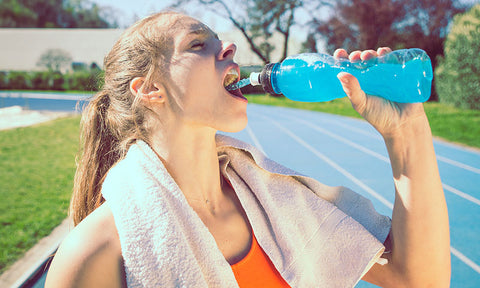
Pros of energy drinks
Energy drinks provide positive effects on activity, and physical and mental strength, including:
- They significantly stimulate the nervous system, warding off feelings of drowsiness and lethargy.
- They immediately enhance vitality and activity due to their fast absorption rate.
- They amplify physical performance for demanding, tiring tasks over extended periods without the sense of tiredness or fatigue.
- They enhance mental cognition, aiding in memory activation, improving retention, and boosting brain focus and concentration.
Cons of energy drinks
The detrimental effects of consuming energy drinks consistently and in large quantities can't be ignored. Here are some to consider:
- Energy drinks can cause digestive disturbances like acidity, ulcers, and diarrhea due to their high caffeine and sugar content.
- They increase the risk of obesity and diabetes due to their high calorie and carbohydrate content.
- They have a negative impact on heart health, elevating blood pressure and heart rate.
- They weaken bones and contribute to tooth decay by eroding enamel and depleting vitamin D and calcium.
- They might lead to headaches, insomnia, anxiety, and nervousness due to their high caffeine levels.
Coffee – quality of taste and effect
Coffee, a widely cherished beverage globally, offers individuals energy, vigor, and support for concentration and creativity. Here, we'll outline the key advantages of coffee and then delve into its bodily side effects.
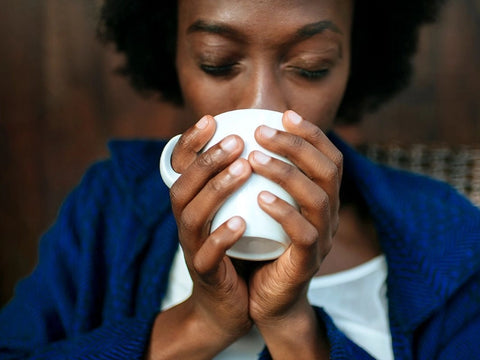
Benefits of drinking coffee
- Caffeine in coffee contributes to dopamine release in the brain, enhancing mood.
- Caffeine stimulates the central nervous system, increasing alertness, attention, and focus.
- Coffee activates metabolism and boosts fat burning, making it beneficial for weight loss.
- Consuming coffee before workouts enhances physical performance, strength, endurance, and helps combat fatigue.
- Coffee contains antioxidants that fight free radicals, reducing the risk of certain chronic diseases like diabetes and heart conditions.
- Regular coffee consumption reduces the risk of certain cancers, such as liver and colon cancer.
To learn more, check out our article: The Relationship Between Coffee and Cancer
Side effects of drinking coffee
The negative side effects of coffee consumption are often linked to excessive intake. Therefore, it's crucial to maintain an appropriate dosage, not exceeding the safe daily limit of caffeine intake to avoid the following:
- Insomnia
- Increased tension and anxiety
- Stomach pains
- Headaches
- Elevated heart rate
- Dehydration
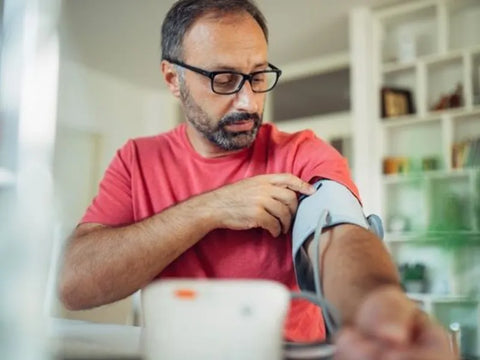
The best coffee alternative - Prifa tablets
Prifa coffee tablets offer a natural boost of energy and focus, crafted from premium coffee beans, along with coconut milk, gum Arabic, and a rich dose of stimulating caffeine.
Packaged in small, sleek boxes pocket-sized for easy carrying everywhere, these tablets provide the convenience of enjoying unique coffee flavors without any preparation.
Don't hesitate, get yours now!
Learn more about Prifa tablets in the following article: Ingredients in Prifa Tablets.
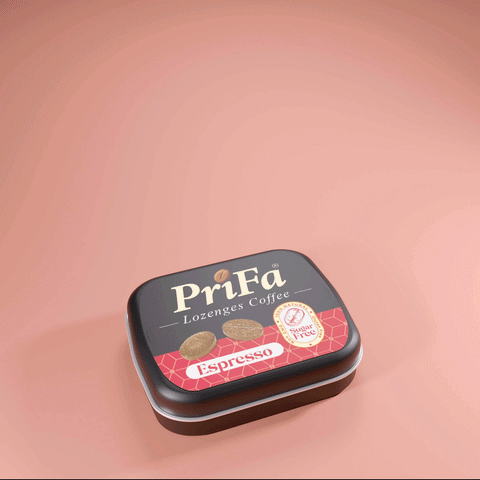
Which options are better: Coffee vs Energy Drinks vs. Prifa tablets?
The answer to this question depends on your preferences, and below is a comparison to help you decide more clearly:
|
|
Regular coffee |
Energy Drinks |
Prifa coffee tablets |
|
Ease of use |
It takes time to prepare and a suitable place to drink it |
Available in ready-to-carry package |
It is ready and does not require time or effort to intake or prepare |
|
Intake way |
Hot or cold drink |
Drink |
Tablets that can be sucked directly in three flavors (cardamom, latte, espresso) |
|
Effect speed |
From 30 to 60 minutes |
Between 15 and 45 minutes |
5 to 10 minutes |
|
Components |
Roasted and ground coffee beans |
Contains caffeine, sugar, and additives |
Premium coffee beans, natural materials that support the body's energy, and do not contain sugar |
|
Amount of caffeine |
80-100 mg per cup |
70-150 mg per package |
10-30 mg per tablet, depending on flavor |
|
Control the dose of caffeine |
Inaccurate |
Inaccurate |
Accurate |
|
Effect on the digestive system |
Coffee may cause stomach irritation in some people |
Causes digestive system disorders |
Light on the stomach |
|
Side effects |
Insomnia, high blood pressure, and increased heart rate, if consumed excessively |
High blood pressure, arrhythmia, dehydration |
It has no side effects |
Coffee vs Energy Drinks Caffeine
When it comes to caffeine both coffee and energy drinks are popular sources that help enhance alertness and improve focus but the differences between them can be noticeable
Coffee which is the traditional favorite for many usually contains caffeine levels ranging from 80 to 200 mg per cup and this amount is sufficient to give a good energy boost that lasts longer due to the gradual effect of caffeine
Energy drinks on the other hand offer a wider range of caffeine content ranging from 50 to 300 mg per can providing a quick burst of energy but it can be followed by a sharp drop in energy levels
The main difference lies in how caffeine affects you: while coffee releases caffeine gradually leading to a balanced increase in energy energy drinks provide a sudden boost that may be short-lived and lead to a rapid decline in energy levels after a short time
The effect of caffeine in energy drinks can be more intense due to the high concentration of caffeine which may cause more noticeable side effects such as jitteriness and disruptions in heart rate
Coffee on the other hand provides a more sustainable effect and is considered a more balanced alternative for those looking for long-term improvements in energy levels
Coffee vs Energy Drinks Health
When looking at the health effects of coffee compared to energy drinks coffee excels in many health aspects
Coffee is rich in antioxidants which help fight free radicals potentially reducing the risk of chronic diseases such as type 2 diabetes heart disease and stroke
Additionally coffee contains important vitamins and minerals such as niacin (Vitamin B3) riboflavin (Vitamin B2) potassium and magnesium which play a significant role in supporting overall health
Research suggests that coffee may also be beneficial in enhancing physical performance managing weight and reducing the risk of depression
On the other hand energy drinks contain high amounts of sugar which increases the risk of weight gain and sugar-related diseases such as diabetes and heart disease
These drinks also contain additional ingredients like taurine ginseng and vitamins but their effectiveness and safety are not well-supported by research and excessive consumption of energy drinks can lead to health issues like increased heart rate and blood pressure
Thus drinking coffee is considered a healthier option compared to energy drinks especially when consumed in moderation and without adding large amounts of sugar
Coffee Versus Energy Drinks
The choice between coffee and energy drinks is an interesting topic as each offers different advantages and disadvantages
Coffee which is one of the oldest sources of caffeine offers a range of health benefits due to its antioxidants vitamins and minerals that support overall health
On the other hand energy drinks which are increasingly popular among young people provide a quick boost of energy but may lack the long-term health benefits that coffee provides
Regarding caffeine content coffee offers a gradual and sustained effect while energy drinks provide a quick boost that may be accompanied by side effects such as jitters or a rapid decline in energy after a short period
Additionally coffee is often a less expensive alternative compared to energy drinks as large quantities can be obtained at relatively low prices while energy drinks are often more costly
In terms of ingredients coffee provides a purer and more natural experience while energy drinks contain a range of added ingredients that may have undesirable side effects
Therefore coffee is recommended as a more balanced and healthy option while energy drinks can be considered for specific situations where a quick energy boost is needed
Frequently Asked Questions
Is coffee good or bad for you?
Moderate coffee consumption offers numerous health benefits that support overall bodily health, in addition to its stimulating effects. However, excessive intake can lead to negative effects such as high blood pressure and headaches.
Is it better to drink coffee or energy drink?
Given that coffee is a natural, plant-based substance, it contains antioxidants and beneficial compounds for the body. It can be consumed without added sugar. Energy drinks, on the other hand, lack these natural components.
What can I drink instead of coffee for energy?
Prifa coffee tablets are among the best choices for an immediate and natural energy boost, especially for coffee enthusiasts who might have restrictions preventing them from drinking it directly. Made from premium coffee beans, they contain natural ingredients that support bodily energy.
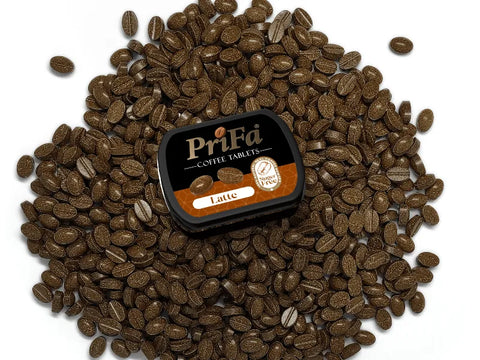
Get your Prifa coffee tablets now and enjoy an immediate natural energy boost!
For more information about Prifa tablets, feel free to contact us at +01 23456789.
Edited by: Prifaco©
